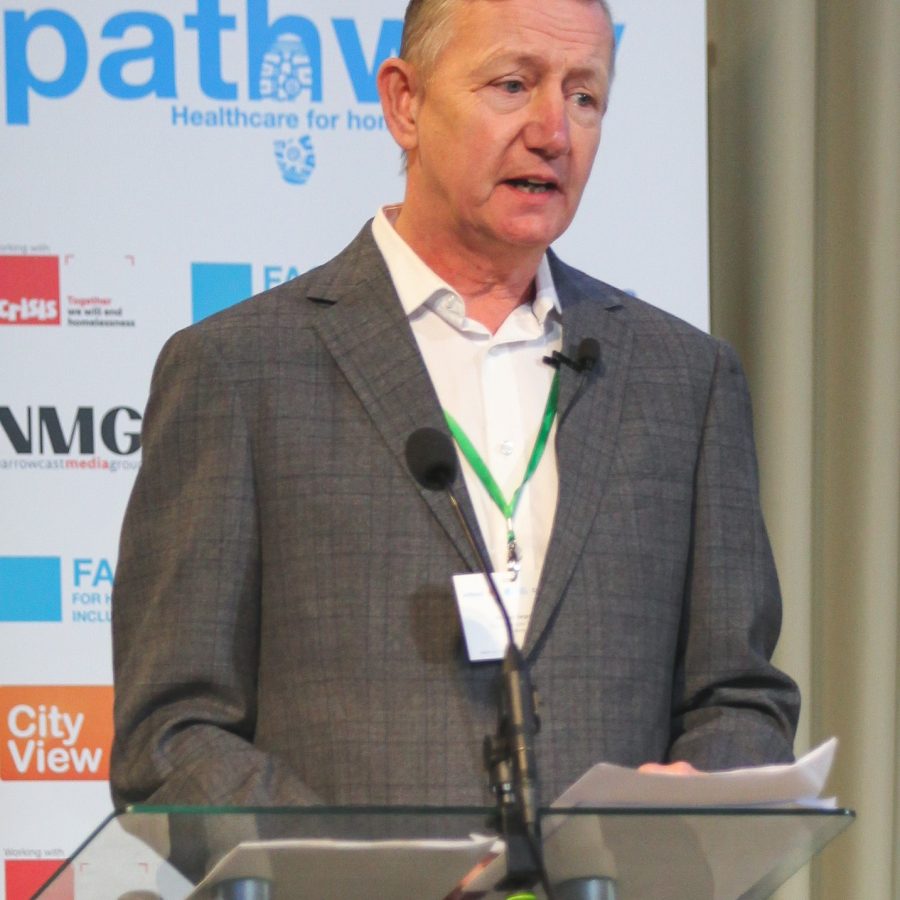I was born in 1965, when the NHS was in late teenage. My first memories of being a patient are visits to the local GP at the surgery attached to his house, and home visits when having treatment for ‘bronchitis,’ later called asthma. In my own teenage years my asthma led to quite frequent weeks away from school until a change of treatment to a new ‘puffer’ sent me from being a wheezing wreck, last by some margin in weekly winter cross country, to coming in third or fourth, and not always having to go in goal in football!
I started medical school at the time of the miners’ strike. With a full grant and fees paid by the local authority, our moans about late cheques seem very churlish now when compared to the huge student debt faced by those who followed just a few years later. Patients in the teaching hospital seemed to have excellent care from dedicated staff, but threats of financial cuts had us marching on the streets of London regularly in the mid to late 80s.
On some nights, some sleep was possible…
On qualifying as a doctor in 1989, it was a massive relief to be leaving medical school, although it brought entry to a world of working overnight a couple of times a week (while still doing the day job) and four-day working weekends (day and night) two out of every five weekends. On some nights, some sleep was possible, but the ever-present thought of the emergency bleep going off, leading to a run across the car park while getting dressed, meant that proper rest was unlikely.
The change to General Practice brought a more reasonable life. No more hierarchical hospital structures, and ‘on-call’ meant driving around dark streets looking for patients’ houses, rather than dashing to a cardiac arrest. This soon turned into shifts in the new GP Co-op and then no on-call at all when GPs voted to give up 24-hour responsibility for patients. This perhaps marked the start of a diminishing continuity, but at the time felt like a massive step forward for GPs’ wellbeing.
We opened the doors with a patient list of zero, growing to 700 within a few years. The need was overwhelming and some of the patients severely ill…
A change in NHS legislation to allow employment of GPs outside of traditional partnerships led to a post as a salaried GP in a Personal Medical Service (PMS) pilot in Brighton, in 1998. The surgery was new and aimed at providing a service to people who were experiencing homelessness. We opened the doors with a patient list of zero, growing to 700 within a few years. The need was overwhelming and some of the patients severely ill, both mentally and physically. Developing the surgery with Substance Misuse services, the Mental Health Team, midwives and outreach services was hard but rewarding work. Maintaining a work/life balance with a young family was also difficult, but just about possible.
After six years the local health authority moved the surgery management from a Community Trust to a commercially minded ‘private NHS company’, with disastrous consequences. Opposing ways of thinking about health (patient centred vs profit driven) became untenable, especially when departing management staff were replaced by others with no experience, interest or understanding of what we were trying to do.
The NHS can benefit greatly from such new ways of working…
Eventually, after four years of increasingly difficult relationships, the company made us all redundant and we were sad, but relieved, to go. Soon afterwards Pathway, the Inclusion Health charity, approached me to lead an arm of a clinical trial into the Pathway approach of GP led in-reach teams. The trial was successful, and the Brighton Pathway team is now in its 11th year. The NHS can benefit greatly from such new ways of working, welcomed in some places, yet still rejected in others.
After a few years, the company at my old surgery handed back their contract, threatening it with closure. Along with clinical staff at the surgery, we created a Community Interest Company, ARCH, to bid for the contract. We were successful, and within two years of taking over gained a CQC rating of ‘Outstanding’ in all areas. This year we have been awarded a seven-year contract for a service bringing together Primary Care for 1,400 patients, hospital in-reach, outreach, and step-down services. Quite a journey from the pilot surgery with no patients in 1998!
…the NHS is the people within it.
During my years of practice, perhaps the most significant thing I have learned is that the NHS is the people within it. Most of them are dedicated, caring, and fiercely protective of their patients and services. However, increasing numbers feel undervalued, downtrodden, and questioning of the future, while younger people joining the service question whether to go somewhere where they will be appreciated (and paid) more. We ignore their feelings at the peril of an organisation with the goal of health equality at its heart, and one which we all wish to see thrive for another 75 years.
Happy Birthday, old friend!
To find out more about NHS75, click here.
You can also join the Faculty for Homeless and Inclusion Health here.
